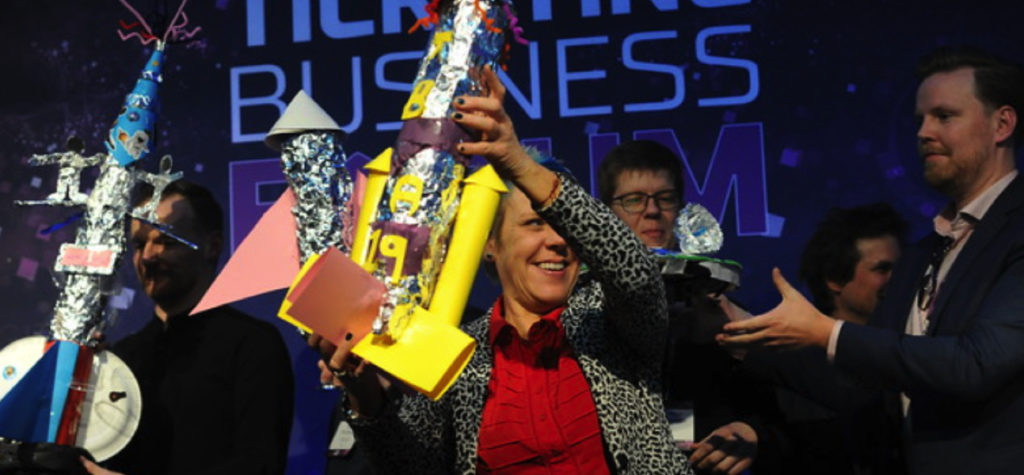Integrating cashless systems at one of Switzerland’s biggest music festivals
Paléo Folk Festival was launched in 1976 attracting 1,800 revellers to the Swiss town of Nyon. Today it’s one of Europe’s most important music events attracting big name bands and some 230,000 people to an impressive 84-hectare site.
We speak to the festival’s head of projects David Franklin to find out how the event has evolved and how it plans to develop its ticketing systems.

Tell us a little about yourself, David:
I grew up in Nyon and basically spent all my adolescent years at the Festival. I worked as a volunteer for seven years, then when I got my Bachelor’s Degree in Psychology I decided to change route. I went knocking on the door of the Festival and managed to get an internship within the Communication & Sales department. I then gradually gained experience and responsibilities within ticketing and also pursued more studies and obtained a Diploma of Advanced Studies in Cultural Management from the Universities of Lausanne and Geneva in Switzerland. 2016 will mark my ninth Festival. I love my job, love the Festival and the philosophy we try and share with our audience.
How has the Festival grown since 1976?
Paléo started off in 1976 as the First Folk Festival with a total audience of 1,800. In 2015, on the 40th Anniversary, we welcomed over 270,000 people over seven nights. You really can’t compare the two but you could say the Festival has become something quite amazing.The Festival started off with no other ambition than to bring folk music to a region where not much was happening. There was no wish to create an international festival or an event that would be internationally renowned, but I think that actually helped people from Nyon and the region to identify with the event. Gradually it grew and people stayed involved. We are actually a non-profit cultural association and we depend on around 5,000 volunteers who give time and energy every year to organise this event.
What’s next on the agenda?
We marked our 40th anniversary with the introduction of a seventh night. We’re going back to our traditional six-day format for the moment. Each year we welcome a different continent at our Village du Monde (an area dedicated to world food and cultures) and we also work on special projects with the Swiss universities. We always have a mix of big headliners and new artists and we also promote local and swiss artists. MUSE is headlining this year’s festival! They first came 16 years ago and we’re delighted to have them back. Future plans also include the adoption of NFC/RFID technologies for cashless and access control.
The festival has been a complete sell-out year on year. What can that be put down to?
The Festival has been sold out for the last 12 years. We work hard to ensure everybody who comes to the festival goes back home having lived a great experience. We offer great concerts but we also make sure that the conditions in which they watch are always good and that the whole event is special. More than 200 food stalls from all over the world are chosen with great care and we also make sure we have activities for all (kids, teens, parents, etc).
I think the marketing is based on word-of-mouth but to build word-of-mouth you need a great product.
What ticketing systems do you use?
We use Secutix for our online sales on our own website, plus we work with Ticketcorner (Eventim in Switzerland) for POS sales and also some web sales.
Systems can always be improved. We currently sell over 75 per cent of our tickets through our own website and that figure is growing each year. People come directly to our website and we’re in total control of our sales.We can improve by learning how to use our CRM more effectively and we’re working on adding cashless technologies.
Do you offer premium tickets?
We only have two prices – adult or student. We don’t sell VIP or premium packages. We have VIP zones but these are only for our sponsors – the public can’t buy access.
Do you rely on repeat bookings?
According to a recent survey, 97 per cent of our audience thinks that they’re likely to want to come back the next year. And actually 80-85 per cent do, meaning the new 15-20 per cent audience will also want to come back. We have a huge fanbase and we never let them down.
What about mobile ticket sales?
We sell our tickets online and people are now buying tickets from their smartphones. But the festival is currently facing a special situation where the tickets are sold very quickly. In 2015 it took 52 minutes to sell out (210k tickets). So our technology needs to stand the pressure and demand.
Who do you benchmark against?
Benchmarking is a complicated affair but we’re always on the look-out for new ways and new technologies and we have great collaborations within the ILMC, the SMPA, as well as DeConcert and Yourope (a European festival association). Music festivals are competing against each other in certain ways but we’re on an expertise exchange level most of the time.
What are you hoping to gain from this year’s Ticketing Technology Forum?
I’m looking forward to exchanging views with other festival organisers and getting information about new technologies that are arriving on the market including the integration of cashless systems and RFID-based access control.













Share this